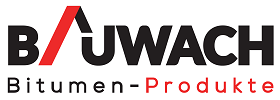
Whether you’re ready to take on new projects, expand, or handle an unexpected expense, your financials will be in the best shape to support your next move. While catching up on overdue records can seem overwhelming, delaying only increases the risk of IRS audits, tax penalties, and financial uncertainty. For instance, if Client X hasn’t paid their $700 invoice and you’ve tried everything, you might write it off. As a bonus, regular follow-ups on invoices mean you’ll avoid this problem in the future. If this feels like the story of your life as a business owner, read on to learn a simplified step-by-step guide on the process of catch-up bookkeeping. These experts ensure accuracy, compliance with tax laws, and maximize your deductions while minimizing your tax liability.

Gather Your Documents
Fortunately, managing backlogs can be straightforward if the task is delegated to the right hands. Shifting your accounting process to an outsourcing firm helps to keep your book up to date and error-free, keeping you away from stress during the financial year-end. Audit-ready books allow you to stand on a solid financial foundation for 2024. When your books are up to date, you’re catch up accounting prepared for whatever comes your way.

Want to outsource your bookkeeping instead? Hiline can help.
- The Internal Revenue Service (IRS) mandates small and medium businesses to issue these reports, necessitating the maintenance of accurate records year-round.
- There’s always something pulling on you whether it be implementing the next product or service, training new employees, or strategizing for the next campaign.
- It might seem costly to hire a CPA or tax professional in the short run, but they’ll often save you more money in tax liability deductions and more.
- Secured, low-interest-rate loans, such as a mortgage, are typically considered good debt.
- If your small business receipts are piling up, an expense tracker will help you stay organized and on top of your expenses.
- Each team member has unique skills and strengths, and assigning tasks based on these can ensure high-quality work and efficient completion.
- At CoCountant, we specialize in expert catch-up bookkeeping services designed to eliminate bookkeeping backlogs and restore financial clarity.
One of the most critical aspects of year-end accounting is preparing for tax filing. Having well-organized financial statements makes tax preparation much more manageable. It’s also a good time to review any tax deductions or credits your business is eligible for. Now it’s time to sit down with your bank and ledger account credit card statements and reconcile all the transactions. You’ll need to compare each transaction from your bank statement with the corresponding transaction in your records.
How can I catch up on my bookkeeping?
- I acknowledge and agree that I am authorized to receive calls at the number provided and to consent to receive those calls from Tax Hardship Center, LLC.
- For employees, double-check their W-2 forms and make sure all details, like addresses and tax IDs, are up-to-date.
- Realistic deadlines not only help you manage your workload more effectively but also build trust with your clients by demonstrating reliability and professionalism.
- Overdue invoices can be a sign that you need to catch up on bookkeeping to keep your business running smoothly.
- Find out how pre-accounting automation can transform your business—boost efficiency, unlock time savings and organize expenses with ease.
If you can’t find receipts for small meals don’t worry, the IRS only requires receipts for anything over $75. Catch-up bookkeeping services are the perfect solution for a busy small business without the time or resources to handle taxes in-house. Don’t have an organized record or your business expenses in a handy spreadsheet? Here’s a step-by-step guide to help you catch up on overdue bookkeeping efficiently. Separating business and personal expenses makes it easy to identify and deduct legitimate business expenses at tax season. It simplifies tax preparation and reduces the risk of errors or oversights that could lead to audits or penalties.
- For example, if you have a transaction where you paid a vendor for office supplies, check your bank statement to confirm the date and amount match what is recorded in your books.
- One of the most effective time management tips for tax professionals is to prioritize tasks using the Eisenhower Matrix.
- It involves organizing and reconciling financial statements, categorizing them correctly, and updating ledgers, bank accounts, and transaction records.
- If the bank feed was not turned on, a CSV or QuickBooks Online file of the data must be obtained from the bank website.
- Bank reconciliations are probably at the top of the client’s mind, but there are other areas in QuickBooks to review and bring up to date.
This will paint a full financial picture of what is owed to you and what you owe to others. This can be a time-consuming process, if you need help managing your bank and credit reconciliation, you can enlist the help of a bookkeeper to manage this portion of your bookkeeping for you. Having a bookkeeper handle this portion of your bookkeeping can not only save you time but could save you some costs, as it would be more expensive to have your accountant manage this for you. Gather all financial documents, including bank statements, invoices, receipts, and payroll records. Identify the timeframe of missing records and create a checklist of what needs to be updated. QuickBooks bookkeeping for cleaning business Live is often the first online bookkeeping service business owners look to when they don’t have the time or resources to hire someone in-house to manage their books.
